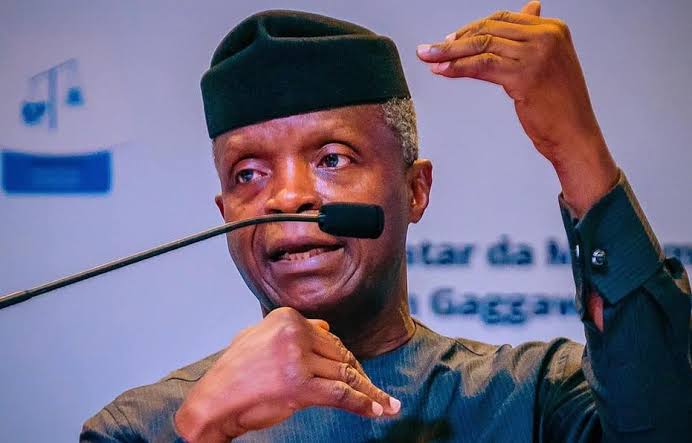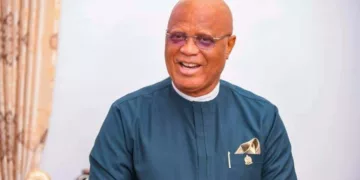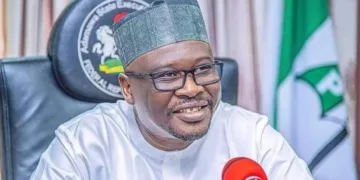More facts emerged on Saturday on the removal of Dr. Bashir Gwandu as Executive Vice Chairman/CEO of the National Agency for Science and Engineering Infrastructure (NASENI).
A statement by the Presidency on Friday said that Gwandu’s appointment had been terminated and that he had been replaced by Khalil Suleiman Halilu “with immediate effect.”
Gwandu, who was appointed by former President Muhammadu Buhari in May, was said to be in Milan, Italy, on an official visit, when his removal was announced.
Sources familiar with the circumstances of his removal cited two possible reasons, none related to his qualification or competence, for it.
“You will recall that he was recommended for the position by former Vice President Yemi Osinbajo, who is not in the good books of the current administration, even though they’re all members of the same party,” one source said.
The source added that with supporters of President Ahmed Bola Tinubu complaining loudly of being left in the cold, it was only a matter of time before Tinubu would be forced to create room to accommodate them.
Gwandu’s replacement, Halilu, 32, has been linked to the Chairman of the All Progressives Congress (APC), Abdullahi Ganduje.
Another source said, however, that Gwandu’s removal may have to do with his position on the management of $20.5 million Delta-2 programme, a research and innovation exchange programme between Nigerian and the Czech Republic that was supposed to run between 2020 and 2025.
While Nigeria was supposed to contribute $10 million to the programme through NASENI; the Czech Republic was also supposed to contribute $10.5 million through Technology Agency of the Czech Republic (TA-CR), its domestic equivalent of NASENI.
“Since Gwandu assumed duties,” a source said, “some members of the Presidential Implementation Committee (PIC) on Technology Transfer/Information Exchange between Nigeria and Czech Republic, have been mounting pressure on him to release money. He has refused, insisting that the programme had not been properly implemented so far.”
The source added that Gwandu’s meeting with the Czech Ambassador to Nigeria, Zdenek Krejci, in Abuja about two weeks ago reinforced his feeling that highly placed persons in NASENI and the PIC may have shortchanged Nigeria.
“Instead of investing part of the funds already released in research, innovation and actually local manufacturing for 25 of the 285 companies selected for the programme,” the source said, “the officials were simply using the money to travel around the world. When Gwandu told them enough was enough, they petitioned the Presidency.”
The source said Gwandu had been invited by the Presidency over the matter, “but it seems they have made up their minds that he had to go, in spite of his defence.”
There is no single concrete evidence of any innovation or research result to justify funds already disbursed under the programme.
The director of information at NASENI, Olusegun Ayeoyenikan, said the reported back and forth between the former EVC and the PIC has nothing to do with his removal, adding that he could not comment on insinuations.
He however said it was the prerogative of the president to hire and fire chief executive of agencies.
Referring to the statement by the presidency announcing a new chief executive for NASENI, Ayeoyenikan said, “It is a statement we all read. We didn’t see anything like that. Like everyone else, I read about the sack and appointment in the statement.”
He also denied any knowledge of Gwandu having been summoned to the presidency saying, “I work under a structured arrangement where I only speak on what I am permitted to speak on.”
In the last three months, Gwandu has pursued efforts to adapt technology for local use and stimulate local production, with lithium battery production in Nigeria; improved use of solar; and the setting up of a maintenance, repair and overhaul (MRO) centre for the aviation sector, being among his pet projects.











